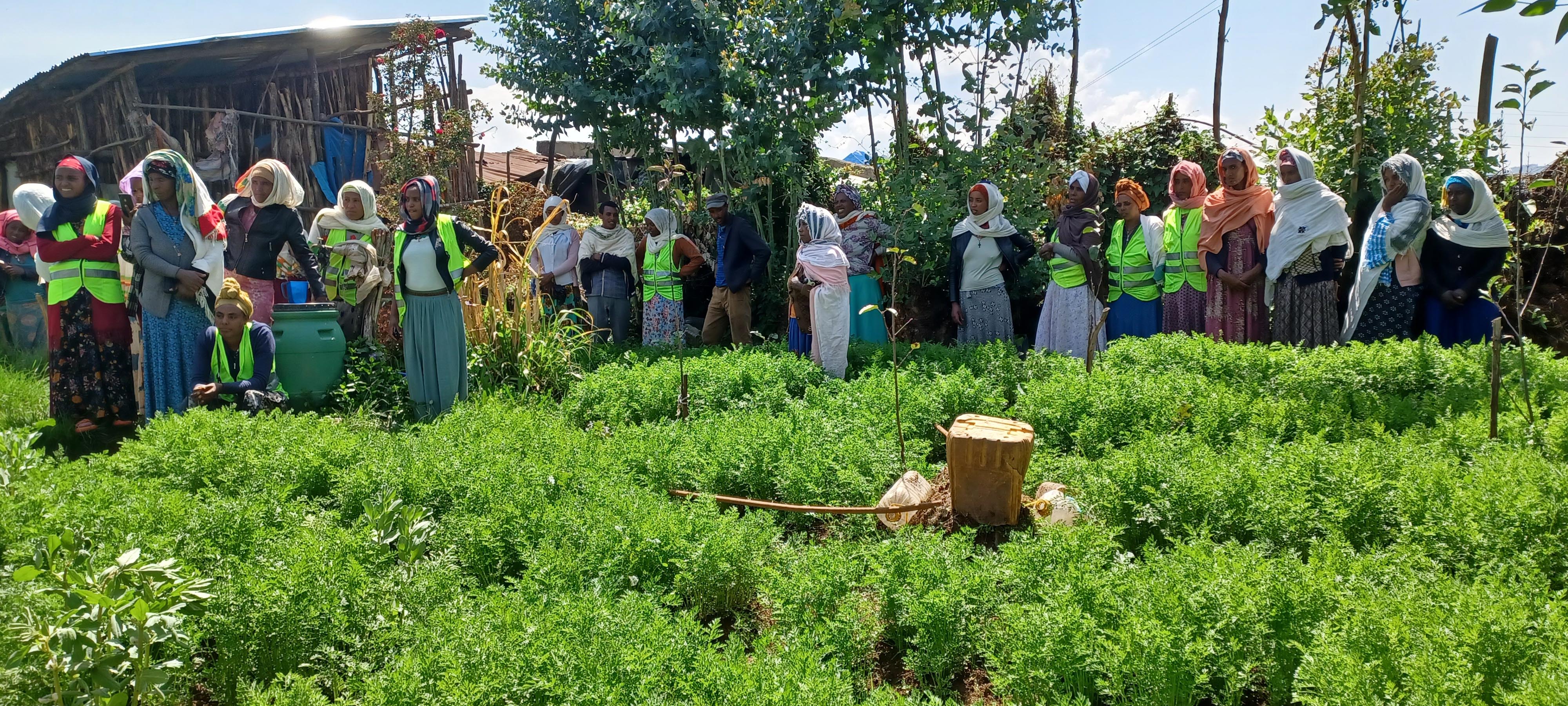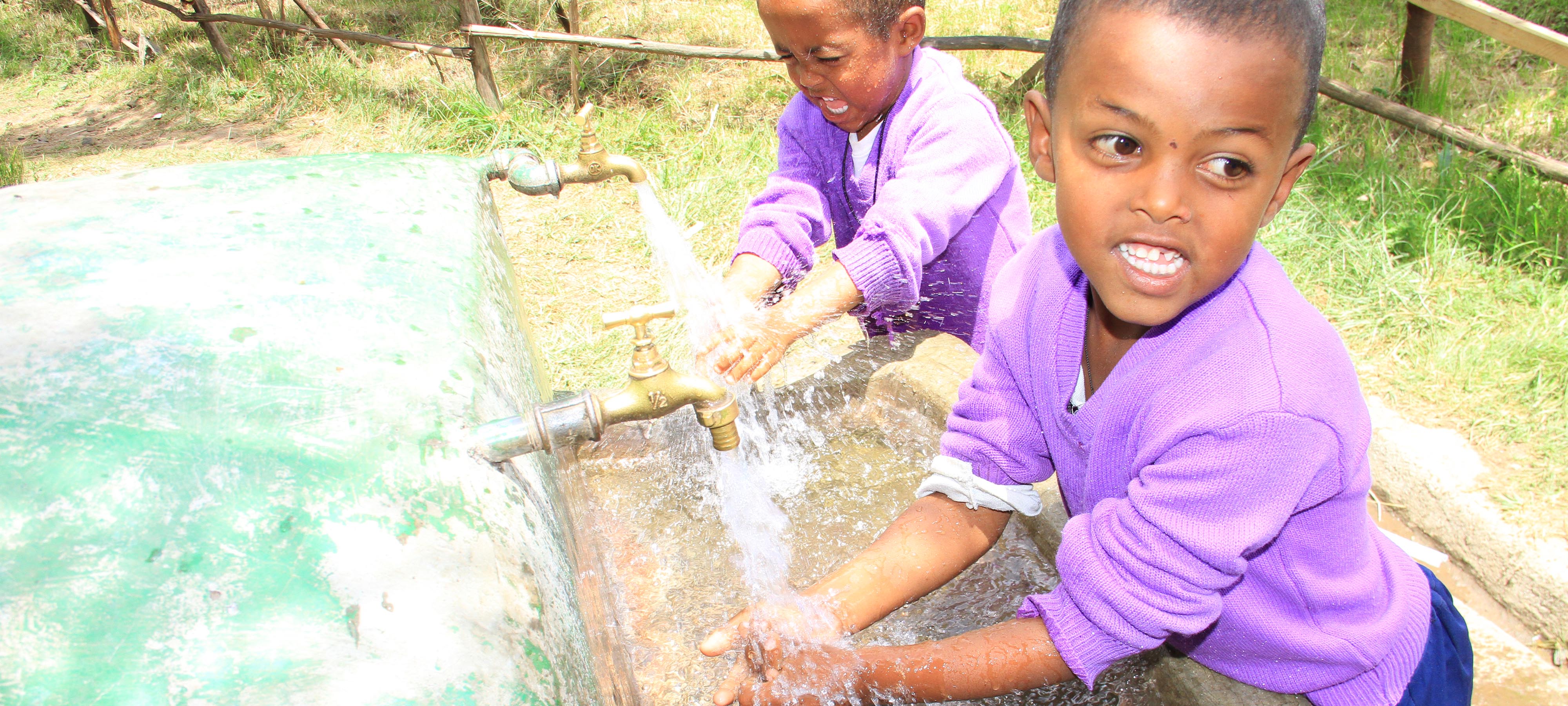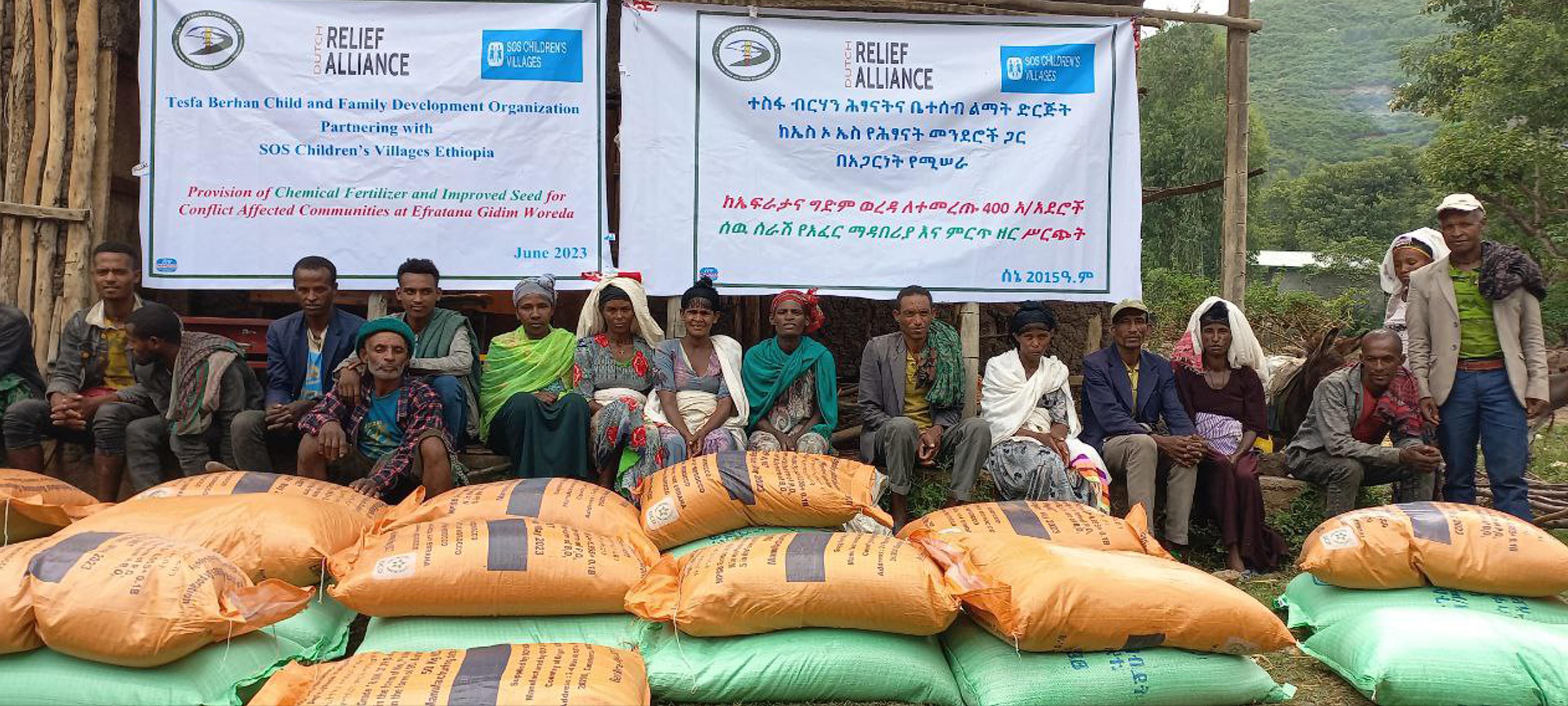Tesfa Berhan CFDO aimed to ensure that children, youths, and women of reproductive age have access to high-quality health care in health institutions and households. Primary health care, nutrition, WASH, SRH, and improving the capacity of health facilities are among the major areas promoted by this sector. Expectant mothers receive health education about the importance of immunization, nutrition, breast feeding, and general antenatal care as part of basic health care. Children from birth to five years of age are later assisted for immunisation, breast feeding, growth monitoring, health screening, supplemental dietary support and referral linkage if they are moderately/severely malnourished.
Tesfa Berhan CFDO also provides reproductive health education and services, as well as life skills to youth and women, allowing them to make informed decisions. Water sanitation and environmental hygiene/WASH/ are the important issues for which community awareness is developed, WASH facilities are fulfilled, and facility management committees and local structures are strengthened. Health professionals and health facilities are also supported by Tesfa Berhan CFDO so that they can provide high-quality services to their clients.






